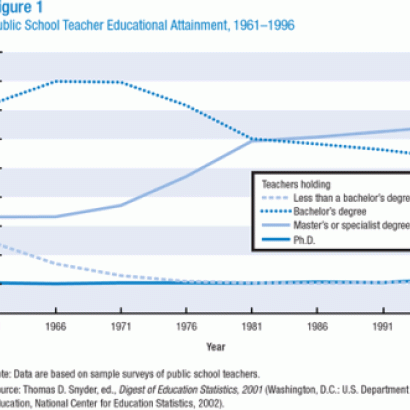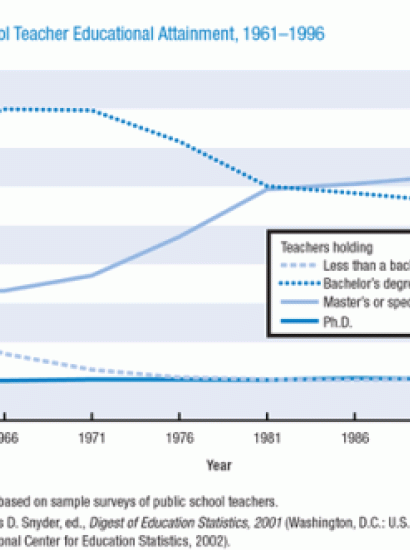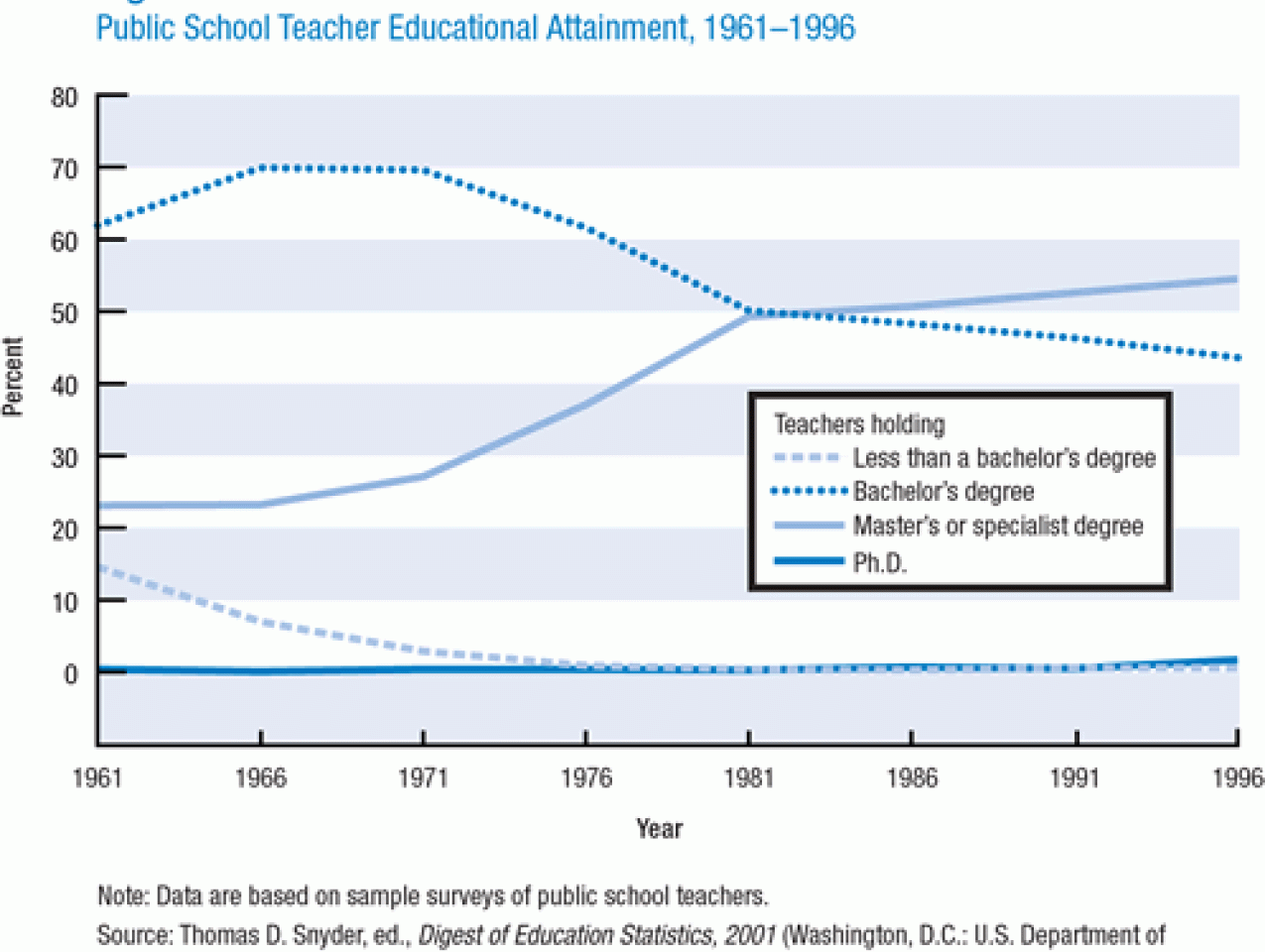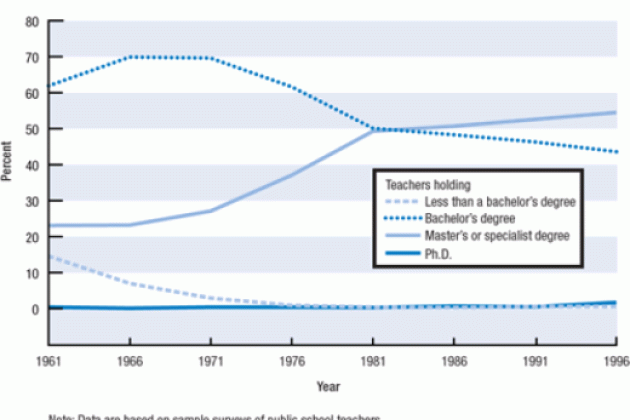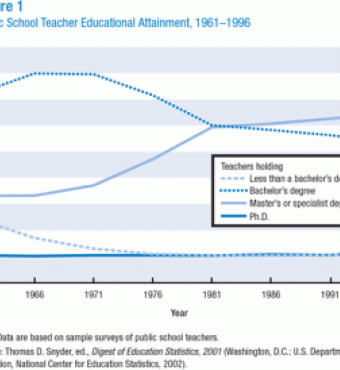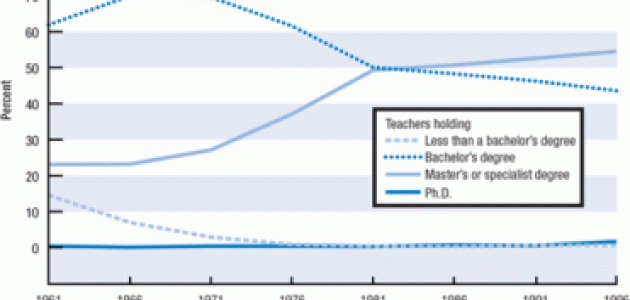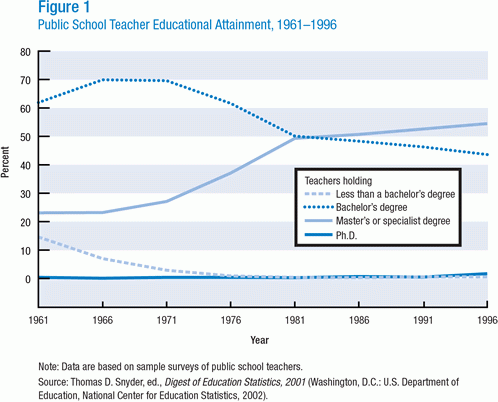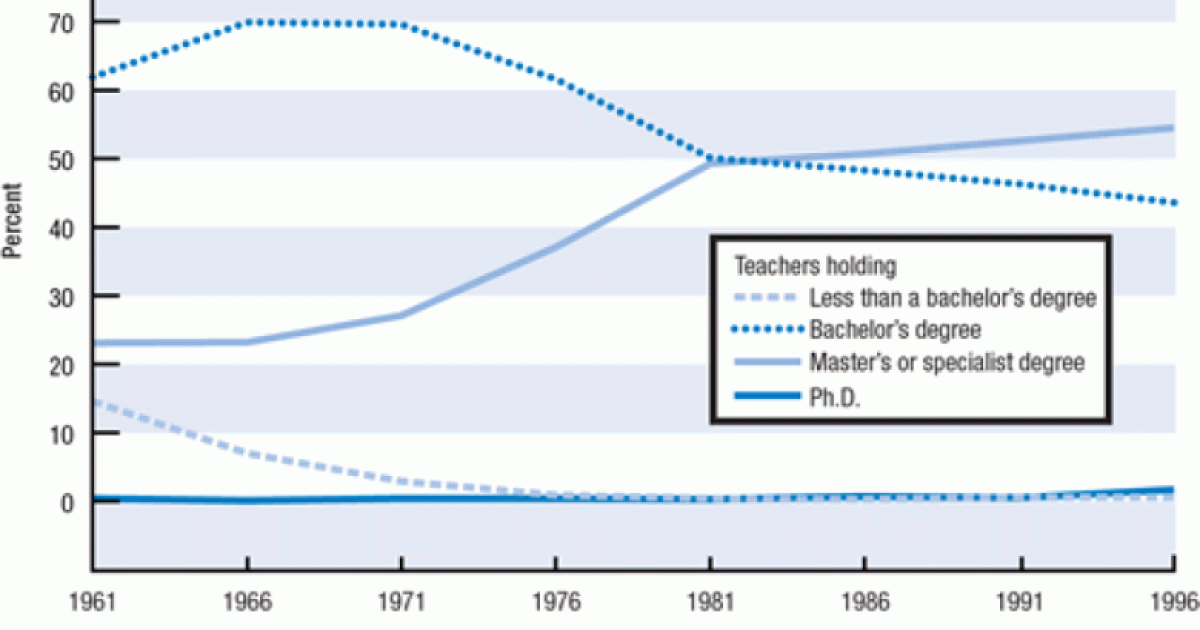- Education
- K-12
An ongoing debate surrounds the preparation and qualifications that characterize high-quality teachers. Relative to other fields, disputes regarding the knowledge and competency that should be required of teachers are particularly striking. Many agree that teachers should possess a strong basic knowledge of the subjects they teach, but does that knowledge necessarily translate into effective teaching? Over time, teachers’ education levels have increased, while student achievement rankings have not.
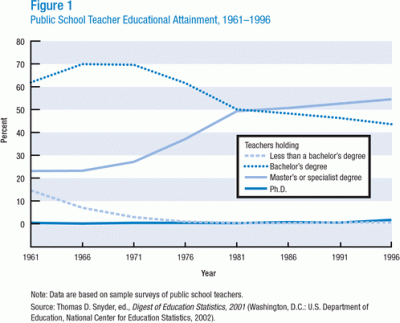
The type of academic degree held is one measure used to determine teacher qualifications. During the 1960s, the percentage of teachers with advanced degrees began to increase. A majority of public school teachers (56.2 percent in 1996) now have advanced degrees (see figure 1). Furthermore, heightened awareness regarding teacher education levels has been accompanied by encouraging teachers, particularly those in secondary schools, to have an academic major such as English, math, or history rather than a degree in education.
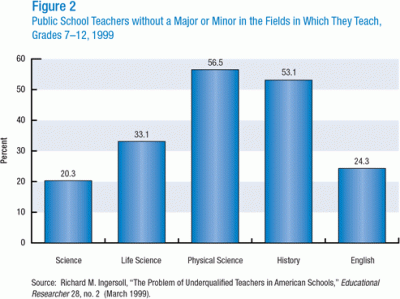
Although there has been a dramatic increase in the percentage of teachers who hold advanced degrees, in most fields, teachers do not hold degrees in the field in which they teach (see figure 2). Considering all primary subjects, in 1999, nearly 34 percent of public school teachers in grades 7 through 12 were teaching without a college major or minor in the academic field in which they were teaching. Contrasting the U.S. experience with 38 other countries that participated in the Third International Math and Science Study–Repeat, on average 71 percent of eighth-grade math teachers majored in mathematics in college, compared with only 41 percent of American eighth-grade math teachers. Moreover, it appears that the more technical the subject, the less likely it is for the teacher to have advanced preparation in the subject.
According to Richard Ingersoll’s 1999 report in Educational Researcher, which studied 7th- through 12th-grade public school teachers,
• One-quarter of all English teachers did not have a major or minor in English, literature, communications, speech, journalism, English education, or reading education.
• One-third of all life science teachers did not have a major or minor in biology or life science.
• More than half of all history teachers did not have a major or minor in history.
• More than 56 percent of all physical science teachers did not have a major or minor in physics, chemistry, geology, or earth science (see figure 2).
Teacher education, as we know it, is not the sole solution to an improved education system. Whereas teachers’ formal education levels have increased over the past 30 years, student achievement during that period has remained flat on a national level and has fallen in international comparisons. Placing a greater emphasis on having teachers obtain an academic degree rather than an education credential might be a good starting point for increasing student performance in the technical fields.








